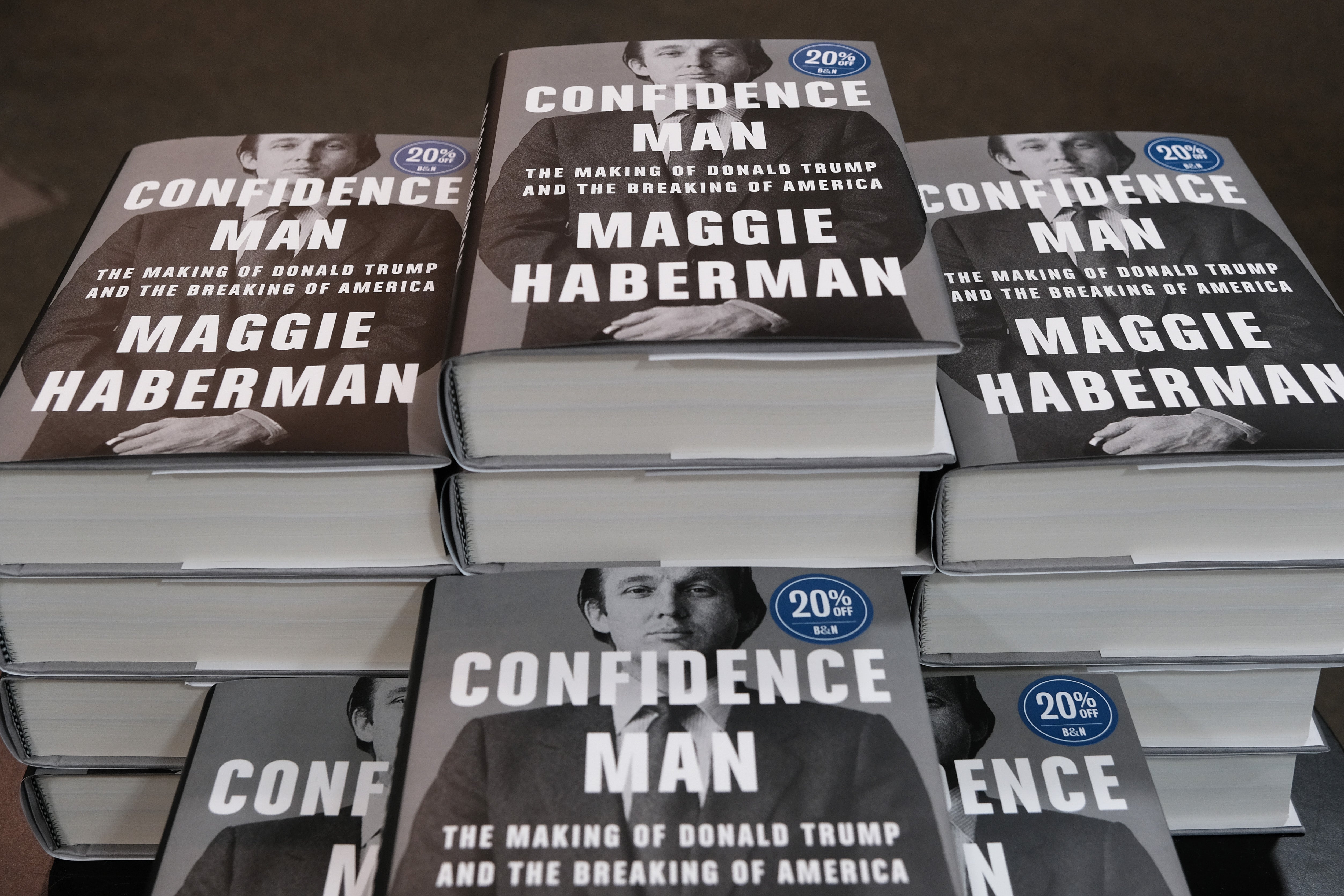Maggie Haberman Derangement Syndrome: It’s a 12-step program
The ubiquity of the New York Times reporter and Trump biographer raises questions about the ethics of modern journalism


Yes, I admit it. I have Maggie Haberman Derangement Syndrome (MHDS). Guilty as charged. But hear me out.
I'm in the gym grinding away on the elliptical trying to ignore the three muted television sets in front of me. The one on the right is tuned to Fox News. Did you know that children will soon be given fentanyl in their Halloween bags? "If it touches their fingers, they literally go into shock and almost die from it. Some I think have died from it..." says the always reliable Lara Trump.
The middle monitor displays News Nation, where a sweaty Mike Lindell is hawking MySlippers. Only $49.98 with promo code. Includes a free gift! There is also a link to Mike's memoir, What Are the Odds. "Mike bares his soul, telling his life story with brutal honesty." Honesty? My Lord.
I look up at the screen on the left and who should I see on CNN, but The New York Times' star reporter, the Pulitzer-Prize winning Maggie Haberman being interviewed by one of her fawning colleagues at the cable station. Maggie is employed by CNN as a political analyst. She looks very serious as she analyzes, well, her new book Confidence Man: The Making of Donald Trump and the Breaking of America.
Is no place safe from Maggie's reach?
Earlier in the morning I had clicked a link to an NYT story that, yes, Maggie had co-written. And, yes, the subject of the reportage was Trump, because, well, that's what Maggie is all about, 24/7 on all platforms. As I was scrolling through yet another one of her stories about Trump's unpunished misdeeds I had to "jump" over two ads. And what pray tell were the adverts hawking? Why it was Maggie's book. So much for the sacred wall that separates editorial content and advertisements.
When I sought relief by wading in the festering bowels of the cauldron known as Twitter, Maggie was trending. Her CNN colleague, Kaitlin Collins, tweeted this on October 7, ahead of Maggie's standing-room-only appearance at Washington DC’s Politics and Prose bookstore: "The woman, the myth, the legend. @maggieNYT." Not surprisingly, Collins was the moderator for the evening's "discussion."
But Maggie often trends on Twitter for another reason, such as withholding valuable information regarding Trump and, instead, saving the juiciest tidbits for her book. Just listen to the howls. "Media Personality" Jeff Tiedrich: "If a tree falls down in the forest and only Maggie Haberman is around to hear it, do we have to wait two years for the book to come out to find out about the noise?" And from someone known as "the living dread": "If Maggie Haberman had been following Robert E. Lee around and got a hold of his battle plan for Gettysburg, she would have saved it for her book 'This Consecrated Ground: How Lincoln Lost The Union.'"
The same criticism has dogged other elites in media, including Maggie's NYT colleague Peter Baker, his wife, New Yorker writer Susan Glasser, NPR's Nina Totenberg and Washington Post journalism Bigfoot Bob Woodward.
For those of us that pine for the good old days when journalists' scoops were featured in the above-the-fold placement of an actual newspaper and not concealed within a $32 tome, the Washington Post's Erik Wemple scolds us for being ankle-biters. Wemple writes that our concerns are "based on an ignorance about journalism and an extravagant view of how scooplets can galvanize America. (They can't.) They're also just plain anti-book. And books are good."
Wait, I like books. I write them. Some people even read them.
Wemple's defensive defense of Maggie reeks of the circle-the-wagons, DC members-only, clubby nature of the nation's insider press corps. As Springsteen sings, "We take care of our own."
Therein lies the problem. Powerful media cartels like the Times, the Post (which I have written for), MSNBC and CNN become an echo chamber for the well-connected mavens of information like Maggie, whose father worked for the Times and whose mother works for a PR agency that has represented Trump.
Out here in the Heartland where I live, that is, west of the Hudson and Potomac rivers, the media is viewed with the same hold-your-nose regard as the politicians they cover and with whom they too often consort with.
Do these powerful, well-paid journalists, cum media celebrities, really deserve our trust simply because they are an ubiquitous presence on cable news stations and social media? Because we, the great unwashed do not have access to them, who among their own brethren will ask the hard questions, such as, what secrets do you know about our so-called public servants that you are withholding for a later financial gain?
For those of us afflicted with Maggie Haberman Derangement Syndrome, we might as well cop to Step One in our recovery process: we are indeed powerless over a greater power than we ever imagined.





Join our commenting forum
Join thought-provoking conversations, follow other Independent readers and see their replies